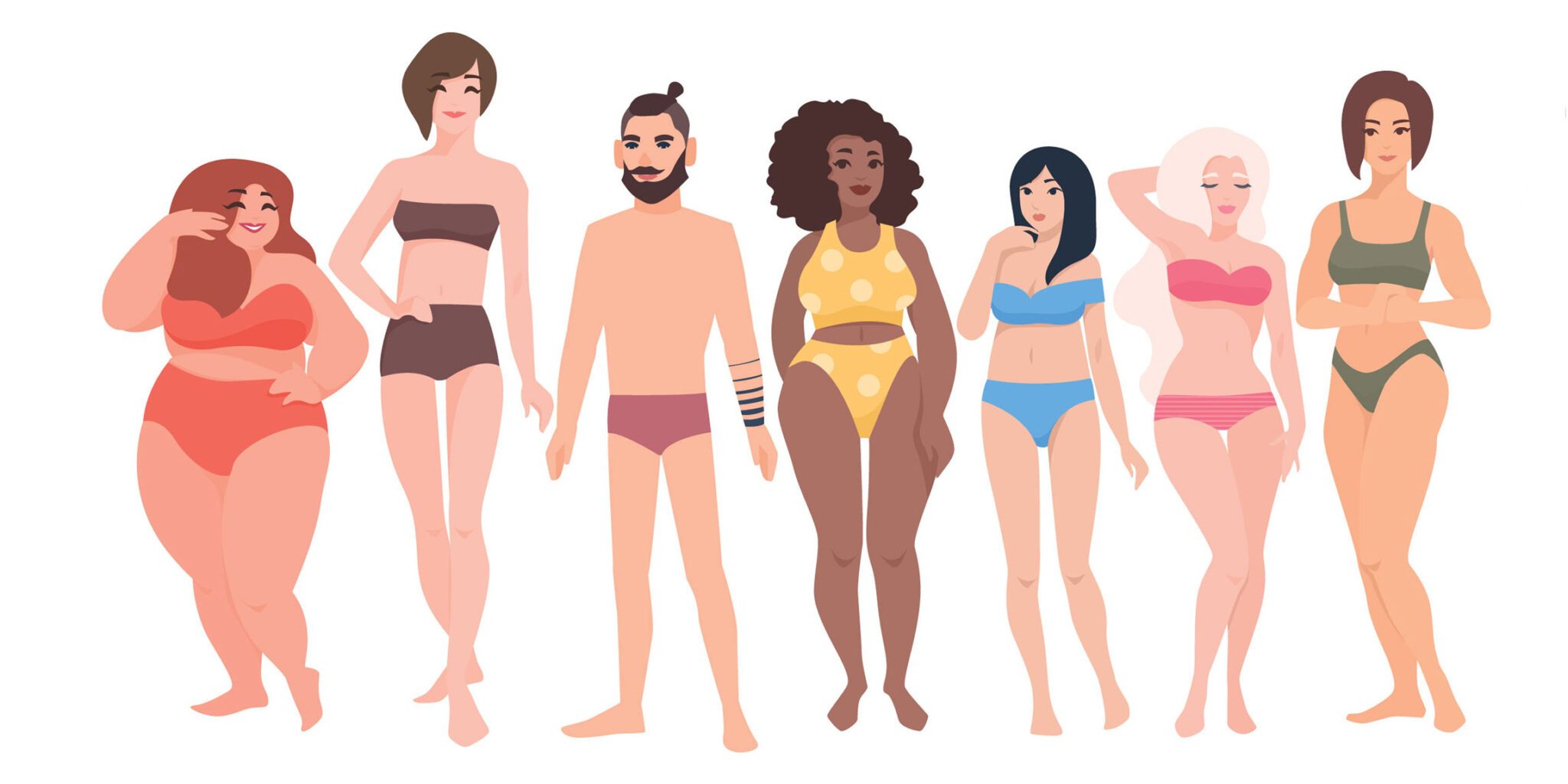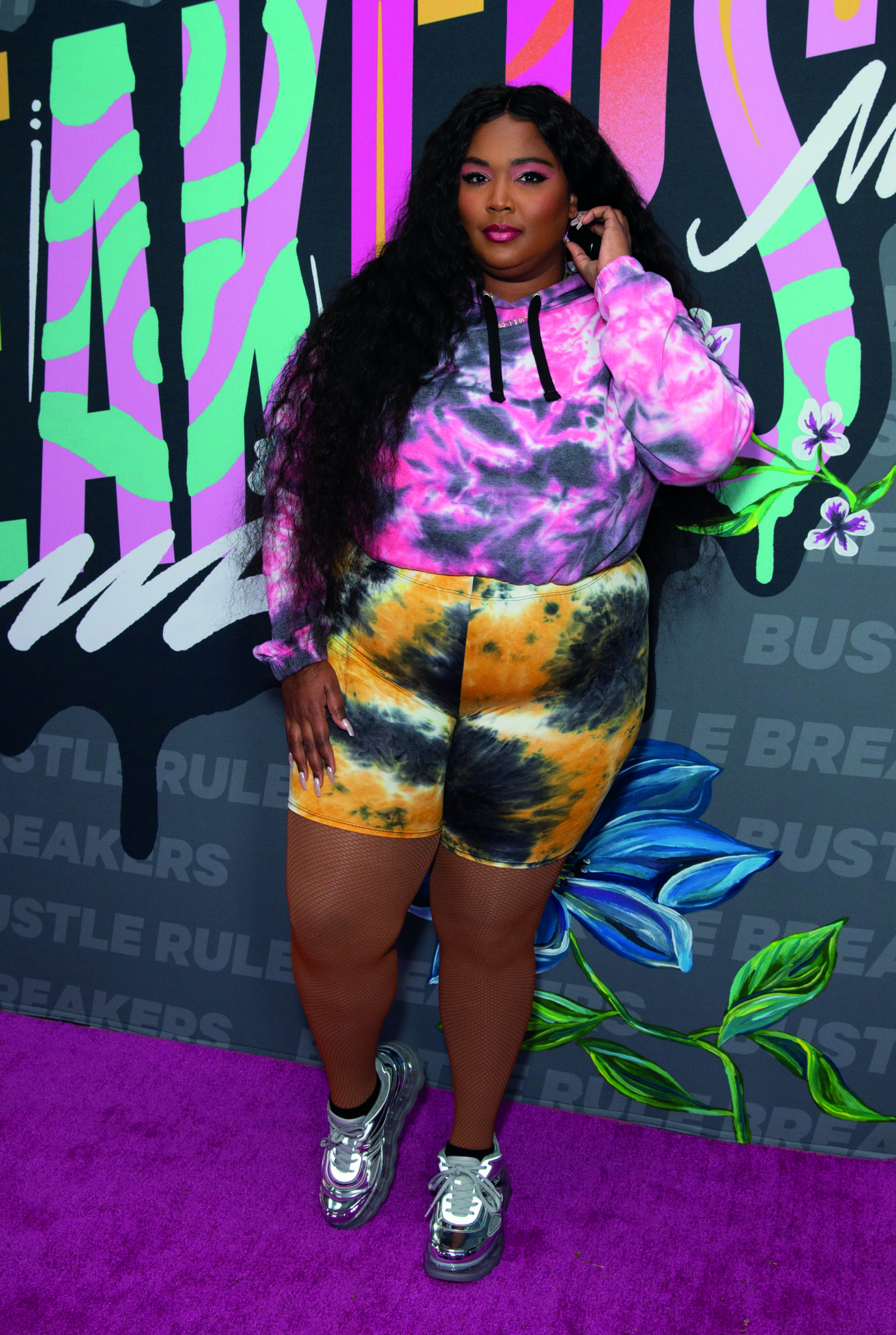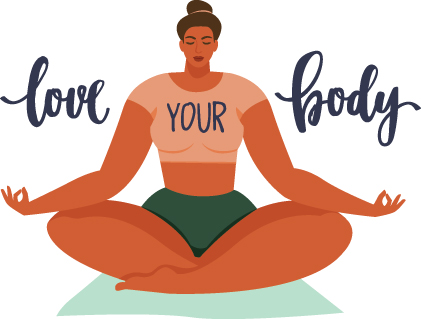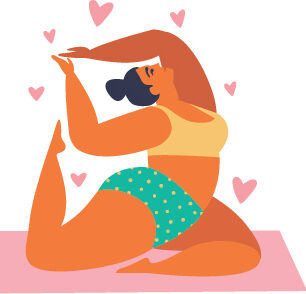
Thanks, but no thanks
The Body Positivi+y Blog
Thanks for your concerns about my body, but I’ll stick to the advice of a professional if you don’t mind. (Oh, and is it any of your business anyway?). By Jane Lambert
If your body is the size and shape that society deems acceptable, chances are you’ve never received unsolicited advice about your health. Whatever your relationship to food, exercise and general wellbeing, if you can fit into a certain size of clothes (around a 10-12, in my experience), you probably don’t get people commenting on the changes you should make to ensure that you are healthy. But for fat people, this isn’t the case. Most recently, celebrity trainer Jillian Michaels was roundly criticised after she commented on singer Lizzo’s health in an interview with Buzzfeed News. “Why are we celebrating her body? Why does it matter? Why aren’t we celebrating her music? Cause it isn’t going to be awesome if she gets diabetes.” On the face of it, you might think that Michaels is just expressing concern. But what gives her the right? What gives one person, with no medical qualifications, and certainly no insight into the personal health of another person, the right to talk about someone else in this way?
never received unsolicited advice about your health. Whatever your relationship to food, exercise and general wellbeing, if you can fit into a certain size of clothes (around a 10-12, in my experience), you probably don’t get people commenting on the changes you should make to ensure that you are healthy. But for fat people, this isn’t the case. Most recently, celebrity trainer Jillian Michaels was roundly criticised after she commented on singer Lizzo’s health in an interview with Buzzfeed News. “Why are we celebrating her body? Why does it matter? Why aren’t we celebrating her music? Cause it isn’t going to be awesome if she gets diabetes.” On the face of it, you might think that Michaels is just expressing concern. But what gives her the right? What gives one person, with no medical qualifications, and certainly no insight into the personal health of another person, the right to talk about someone else in this way?
Concern trolling
It’s a practice known as concern trolling: in the guise of expressing concern about something (in this case Lizzo’s health), you criticise them. It means that you can pretend to be on one side of the argument, while implicitly arguing the other side. It means that you aren’t one of those people that are outwardly abusive about a fat person, but the intent is the same: you want to make someone else feel bad about their body. Being told you should lose weight to benefit your health is something that people with big bodies hear a lot. We’re told that we are at risk of a whole number of awful diseases and health problems, with the implication being that we are just too lazy to take our own health seriously. But there’s absolutely no nuance involved in this argument. If you could judge someone’s health by just looking at them, the NHS would certainly be able to save itself some much-needed money. And even better, if the vast number of people commenting on photos of people like Tess Holliday are anything to go by, to make these determinations, you don’t even need any medical qualifications. We’re saved! In the case of Lizzo, if you’ve ever seen her on stage, you’ll understand why her fans were so outraged by a quick and flippant dismissal of her health. She doesn’t sit around. She sings (incredibly), dances (amazingly), and she also plays the flute. But this, unfortunately is beside the point. Even if she didn’t do any of those things, why is it okay to talk about her body and her health? It’s 2020, and this kind of thing should be left in the past. Any conversation about Lizzo’s health should be between her and whoever she wishes to talk to about it.
Wider Impact
But diet culture promotes something I consider really unhealthy; disordered eating and dangerous body standards. If someone posts a photo on Instagram that shows them looking toned and slim, they’ll probably be praised for it. There’s a sense that all you have to do to gain the approval of society is to present a healthy-looking body. It doesn’t seem to matter what’s going on beneath the surface, whether that person is battling mental health problems that are compounded by the need to look a certain way. All that seems to matter is that we all owe something to society, and that something is to fit into a narrow idea of health.  Wellbeing is so much more than the number that you see on scales, or in your clothes, on a chart at the doctor’s office. Being truly well is something that is different for each and every person, and to offer advice (even if it’s well-intended) about someone else’s health ignores nuance in every way possible. In the last decade, as we’ve become more vocal about mental health, it’s become much less of a taboo subject. It has become the accepted wisdom amongst so many people that our mental health is as worthy of attention as physical health. But it seems as though we still have some way to go, if people think that commenting on another person’s body is acceptable. Mental health is just as important as any physical ailment you think you can diagnose by looking at a photo of someone. You can’t give someone diabetes with your words, but you most certainly can affect their mental health with them. If you really want to take on the concern of someone else’s health (and unless you’re a medical professional, who honestly has the time for that?), maybe it’s a better use of your energies to question the unrealistic ideals that we all face on a daily basis. It’s always been difficult, and it’s getting worse, with apps available at the click of a button that can shrink a waistline or increase your curves.
Wellbeing is so much more than the number that you see on scales, or in your clothes, on a chart at the doctor’s office. Being truly well is something that is different for each and every person, and to offer advice (even if it’s well-intended) about someone else’s health ignores nuance in every way possible. In the last decade, as we’ve become more vocal about mental health, it’s become much less of a taboo subject. It has become the accepted wisdom amongst so many people that our mental health is as worthy of attention as physical health. But it seems as though we still have some way to go, if people think that commenting on another person’s body is acceptable. Mental health is just as important as any physical ailment you think you can diagnose by looking at a photo of someone. You can’t give someone diabetes with your words, but you most certainly can affect their mental health with them. If you really want to take on the concern of someone else’s health (and unless you’re a medical professional, who honestly has the time for that?), maybe it’s a better use of your energies to question the unrealistic ideals that we all face on a daily basis. It’s always been difficult, and it’s getting worse, with apps available at the click of a button that can shrink a waistline or increase your curves.  Nobody is immune, regardless of gender or age; we’re all constantly bombarded with images of people looking a certain way, and in many cases, trying to sell you something that will help you look like them. (A word of advice: unfollow these people immediately.) Next time you are inclined to express your opinions on someone else’s body or health, ask yourself if you’re medically qualified to do so. If not, resist the urge. If you are a healthcare professional, ask yourself if you’ve been engaged by that specific person to discuss their health with them. Again, if not, find a better way to use your energy. It’s time to stop hiding behind the ‘health issues’ argument when you are expressing your opinions on someone else’s body. In fact, it’s time to stop commenting on anybody else’s body.
Nobody is immune, regardless of gender or age; we’re all constantly bombarded with images of people looking a certain way, and in many cases, trying to sell you something that will help you look like them. (A word of advice: unfollow these people immediately.) Next time you are inclined to express your opinions on someone else’s body or health, ask yourself if you’re medically qualified to do so. If not, resist the urge. If you are a healthcare professional, ask yourself if you’ve been engaged by that specific person to discuss their health with them. Again, if not, find a better way to use your energy. It’s time to stop hiding behind the ‘health issues’ argument when you are expressing your opinions on someone else’s body. In fact, it’s time to stop commenting on anybody else’s body.
What do you think? We’d love to know your thoughts on this topic. Email: editor@ommagazine.com


